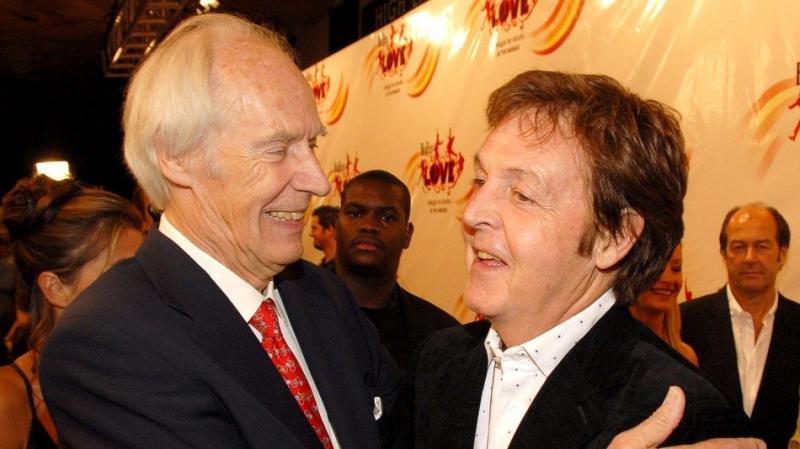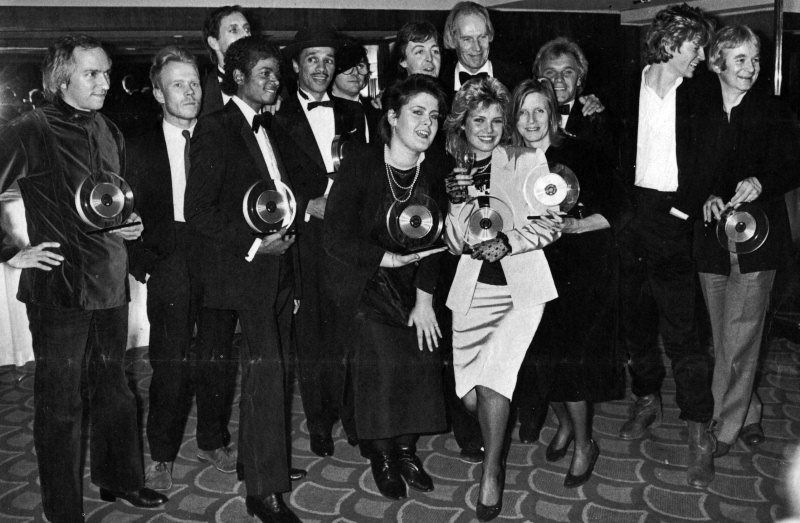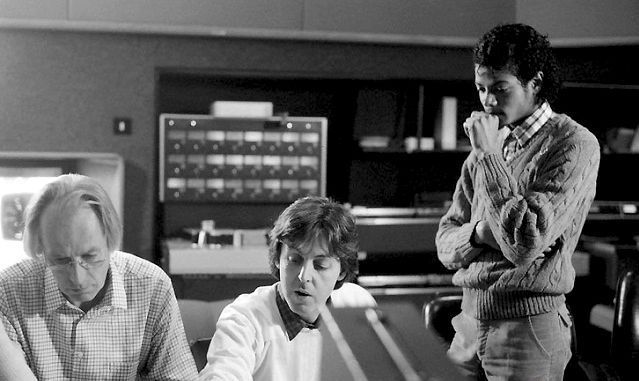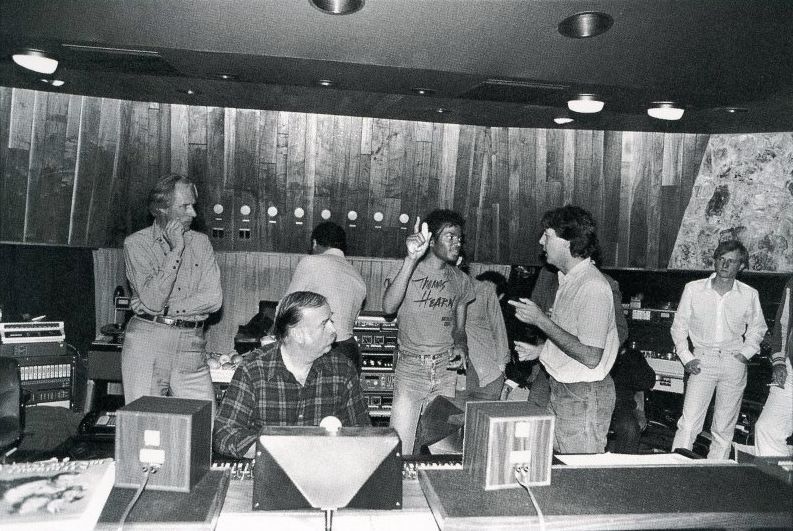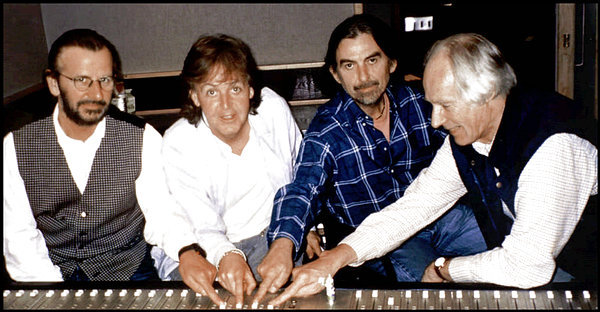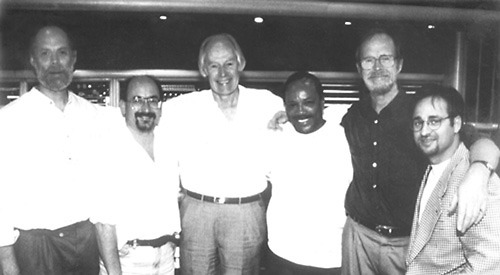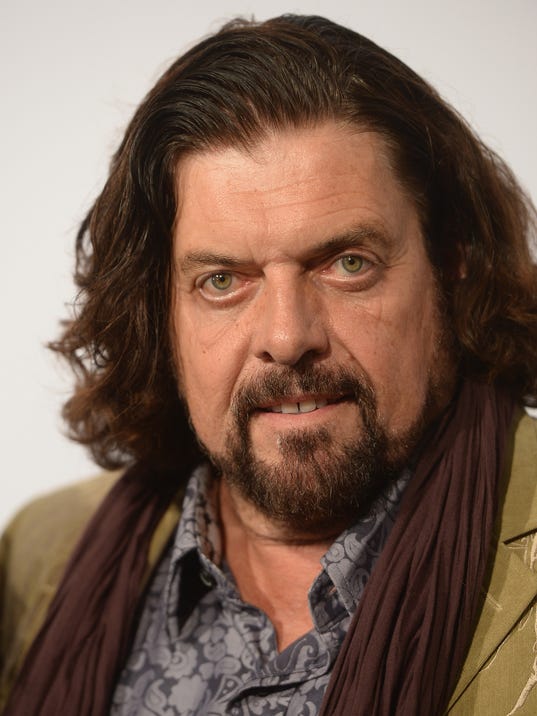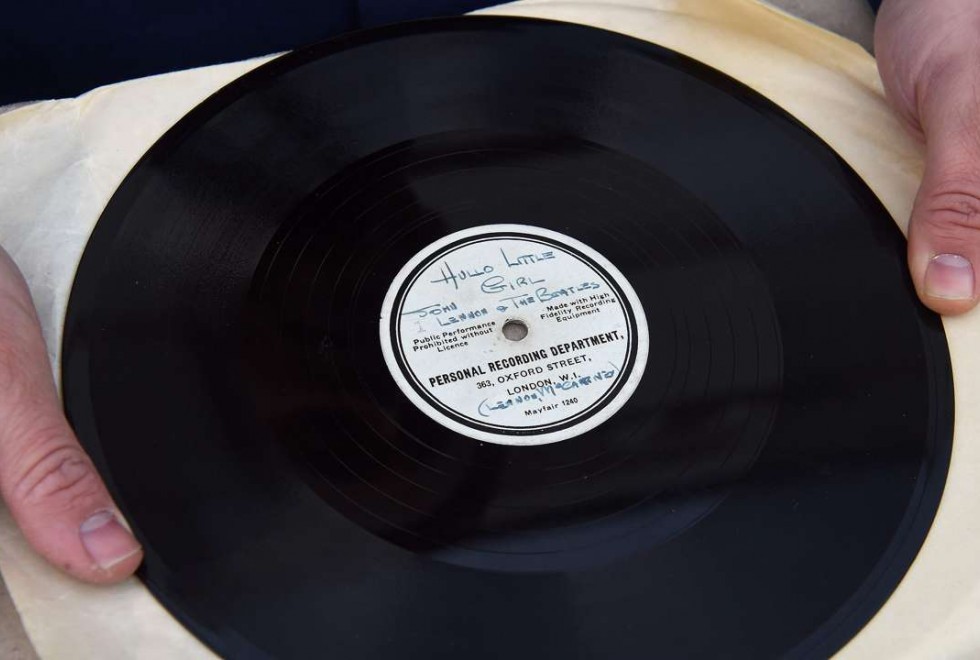| Author | Message |
| Moderator
|
'Fifth Beatle' Sir George Martin Dies Aged 90 The Beatles' record producer Sir George Martin has died at the age of 90.
http://www.cbc.ca/news/ar...-1.3482871 Ohh purple joy oh purple bliss oh purple rapture! REAL MUSIC by REAL MUSICIANS - Prince "I kind of wish there was a reason for Prince to make the site crash more" ~~ Ben |
- E-mail - orgNote -  Report post to moderator Report post to moderator |
R.I.P to the producer of some of greatest music ever made | |
- E-mail - orgNote -  Report post to moderator Report post to moderator |
| |
- E-mail - orgNote -  Report post to moderator Report post to moderator |
Wow... R.I.P. George. Lady Cab Driver is one of the greatest songs ever! | |
- E-mail - orgNote -  Report post to moderator Report post to moderator |
Sad to hear, RIP. I'm not as big a Beatles fan as I have been in the past, but I still have the utmost respect for what they were able to achieve and George Martin was a huge part of that Heavenly wine and roses seems to whisper to me when you smile...
Always cry for love, never cry for pain... | |
- E-mail - orgNote -  Report post to moderator Report post to moderator |
I can't believe it, Rest in Peace such a great artist. Thank you for everything you gave us. | |
- E-mail - orgNote -  Report post to moderator Report post to moderator |
His creative force has never been given the credit it deserves. I once heard Timbaland called the "george MArtin" of our times, and I almost laughed and died. Production now on the mainstream side is so not what he was back then. Slapping on beats is alot different, at times George actually was playing, he was also a music major, studied it, wrote it, conducted it, could write a whole opera if need be. BUT lets just take the Beatles for a moment, I really don't think people give him the credit, and he knew it, about 10 years ago he said "the beatles, man they were so good, they are going to be known for a century or two, because of their writing and great songs, 100 years from now they will still be known, me, not really" so george knew it. I mean you take just what he was doing with tape, splicing, feeding it back into machines backwards, shit was never done before, they were pioneers, and when they started coming up with shit crazy as it seemed, he would get something crazier. John Lennon was stuck on two versions of "Strawberry Fields" and he didnt know which one, and said "i like both" so George spliced the two even though they are totally different tempos. Or as Paul said what he did with "yesterday" was crazy, Paul and the rest said "just do it acoustic by yourself" and George said " thats good, but lets put some orchestra live on there too, if it doesnt work we will use your idea" genius. "We went where our music was appreciated, and that was everywhere but the USA, we knew we had fans, but there is only so much of the world you can play at once" Magne F | |
- E-mail - orgNote -  Report post to moderator Report post to moderator |
You can take a black guy to Nashville from right out of the cotton fields with bib overalls, and they will call him R&B. You can take a white guy in a pin-stripe suit who’s never seen a cotton field, and they will call him country. ~ O. B. McClinton | |
- E-mail - orgNote -  Report post to moderator Report post to moderator |
You can take a black guy to Nashville from right out of the cotton fields with bib overalls, and they will call him R&B. You can take a white guy in a pin-stripe suit who’s never seen a cotton field, and they will call him country. ~ O. B. McClinton | |
- E-mail - orgNote -  Report post to moderator Report post to moderator |
You can take a black guy to Nashville from right out of the cotton fields with bib overalls, and they will call him R&B. You can take a white guy in a pin-stripe suit who’s never seen a cotton field, and they will call him country. ~ O. B. McClinton | |
- E-mail - orgNote -  Report post to moderator Report post to moderator |
Brilliant man. RIP | |
- E-mail - orgNote -  Report post to moderator Report post to moderator |
This great man truely deserves the title "Fifth Beatle" !
Thank you
| |
- E-mail - orgNote -  Report post to moderator Report post to moderator |
March 9, 2016 paulmccartney.com
You can take a black guy to Nashville from right out of the cotton fields with bib overalls, and they will call him R&B. You can take a white guy in a pin-stripe suit who’s never seen a cotton field, and they will call him country. ~ O. B. McClinton | |
- E-mail - orgNote -  Report post to moderator Report post to moderator |
John Williams, Vince Clarke, Pete Townsend, Michael Jackson, Kid Creole, Trevor Horn, Alison Moyet, Paul McCartney, George Martin, Kim Wilde, Linda McCartney, Freddie Starr, David Knopfler, Ed Biknell
You can take a black guy to Nashville from right out of the cotton fields with bib overalls, and they will call him R&B. You can take a white guy in a pin-stripe suit who’s never seen a cotton field, and they will call him country. ~ O. B. McClinton | |
- E-mail - orgNote -  Report post to moderator Report post to moderator |
You can take a black guy to Nashville from right out of the cotton fields with bib overalls, and they will call him R&B. You can take a white guy in a pin-stripe suit who’s never seen a cotton field, and they will call him country. ~ O. B. McClinton | |
- E-mail - orgNote -  Report post to moderator Report post to moderator |
Sweet pics! | |
- E-mail - orgNote -  Report post to moderator Report post to moderator |
RIP George Martin, you've made so much brilliant music come to realization. I will forever be grateful for all the Beatles material you've helped in. Was just listening to Abbey Road when I found out this. Sad, sad, sad. The real genius behind one of the best bands of all time. | |
- E-mail - orgNote -  Report post to moderator Report post to moderator |
by Quincy Jones, March 10, 2016 Time.com
John Lubbock, John Kurlander, George Martin, Quincy Jones, Jeremy Lubbock, Tony McAnany The legendary producer remembers the 'Fifth Beatle' George Martin, who died March 8 at age 90George Martin and I go all the way back. We met before the Beatles and Rolling Stones came to America in 1964 because I had taken Lesley Gore over to England when she was number 1. I’d stay at his house near Oxford, and we’d go to a trout restaurant. Food, music, women, how you like to party—that’s what makes the greatest friendship, doesn’t it? I met Paul McCartney back then and Mick Jagger, too, and we’d all talked about how well they knew American culture. In fact, I even made a bet with Paul that the Beatles wouldn’t happen in America. That was stupid. George and the Beatles—that was a match made in heaven. He was an amazing musician who knew his craft and had the vision and the background in orchestration to take the Beatles to the top. He was responsible for the string quartet in “Eleanor Rigby” and the symphony orchestra in “A Day in the Life.” Any man that understands orchestration can go anywhere. I played the same role with Michael Jackson; I brought the orchestration and he brought the dancing. That’s what it takes to make a great combination. But the bottom line is, you have to have humility, and George was very humble. Everything I did with George was a joy, from the time he asked me to do arrangements for Ringo Starr’s album Sentimental Journey to the times he’d call me from “Abbey Road” and we’d try to figure out how to stack vocals. Working with George was a sonic kind of a journey. Quincy Jones is a producer, composer and philanthropist. You can take a black guy to Nashville from right out of the cotton fields with bib overalls, and they will call him R&B. You can take a white guy in a pin-stripe suit who’s never seen a cotton field, and they will call him country. ~ O. B. McClinton | |
- E-mail - orgNote -  Report post to moderator Report post to moderator |
wow he was 90! its amazing that somebody his age could work with the Beatles amd make them sound so good..its a real tribute to the kind of man he was | |
- E-mail - orgNote -  Report post to moderator Report post to moderator |
Cool. Thanks for the info! | |
- E-mail - orgNote -  Report post to moderator Report post to moderator |
RIP George Martin | |
- E-mail - orgNote -  Report post to moderator Report post to moderator |
You can take a black guy to Nashville from right out of the cotton fields with bib overalls, and they will call him R&B. You can take a white guy in a pin-stripe suit who’s never seen a cotton field, and they will call him country. ~ O. B. McClinton | |
- E-mail - orgNote -  Report post to moderator Report post to moderator |
| |
- E-mail - orgNote -  Report post to moderator Report post to moderator |
You can take a black guy to Nashville from right out of the cotton fields with bib overalls, and they will call him R&B. You can take a white guy in a pin-stripe suit who’s never seen a cotton field, and they will call him country. ~ O. B. McClinton | |
- E-mail - orgNote -  Report post to moderator Report post to moderator |
Alan Parsons reflects on George Martin, the Beatles, 'Dark Side of the Moon' and his own 'Tales of Mystery'
At 18, Alan Parsons took a job at Abbey Road, where he assistant engineered the sessions for the Beatles albums “Let It Be” and “Abbey Road.” By the time he formed the Alan Parsons Project, he’d gone on to engineer “The Dark Side of the Moon.” You can take a black guy to Nashville from right out of the cotton fields with bib overalls, and they will call him R&B. You can take a white guy in a pin-stripe suit who’s never seen a cotton field, and they will call him country. ~ O. B. McClinton | |
- E-mail - orgNote -  Report post to moderator Report post to moderator |
‘Holy Grail’ Beatles record that won over late producer George Martin is sold to British collectorPUBLISHED: Wednesday, 23 March, 2016 South China Morning Post
The demo vinyl record that persuaded late music producer George Martin to sign up The Beatles - a “unique” piece of music history - has been sold to an unnamed British collector. You can take a black guy to Nashville from right out of the cotton fields with bib overalls, and they will call him R&B. You can take a white guy in a pin-stripe suit who’s never seen a cotton field, and they will call him country. ~ O. B. McClinton | |
- E-mail - orgNote -  Report post to moderator Report post to moderator |
Jeff Beck Remembers George Martin: 'He Gave Me a Career'March 18, 2016 Rolling Stone
On his first day recording with the late George Martin, Jeff Beck sensed what the Beatles producer — who died March 8th at age 90 — could bring to his music. With his three-piece band, Beck laid down a version of Stevie Wonder's "Cause We've Ended as Lovers" that left him indifferent. "I didn't think we were laying down much of interest, but then we went to lunch break and heard the quality of the sound," Beck recalls. "I thought, 'This sounds like we're playing in the room — it's clear and fabulous.' That first album was a joy." You can take a black guy to Nashville from right out of the cotton fields with bib overalls, and they will call him R&B. You can take a white guy in a pin-stripe suit who’s never seen a cotton field, and they will call him country. ~ O. B. McClinton | |
- E-mail - orgNote -  Report post to moderator Report post to moderator |
“Transracial is a term that has long since been defined as the adoption of a child that is of a different race than the adoptive parents,” : https://thinkprogress.org...fb6e18544a | |
- E-mail - orgNote -  Report post to moderator Report post to moderator |
 New topic
New topic Printable
Printable moderator
moderator

